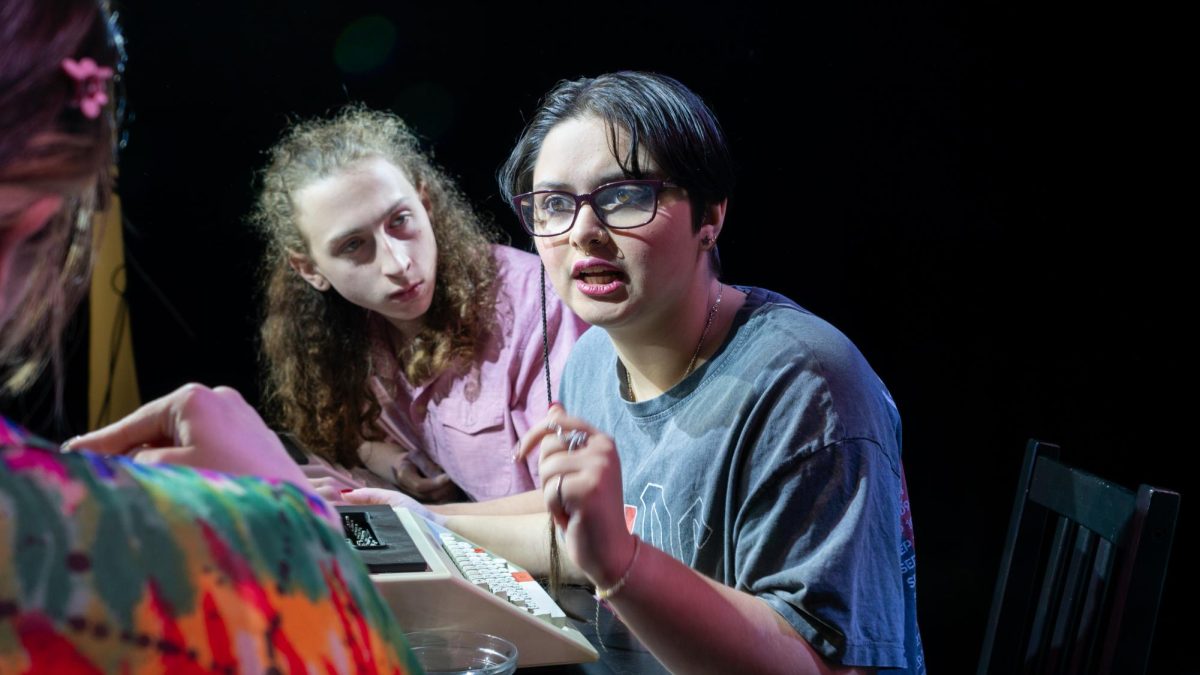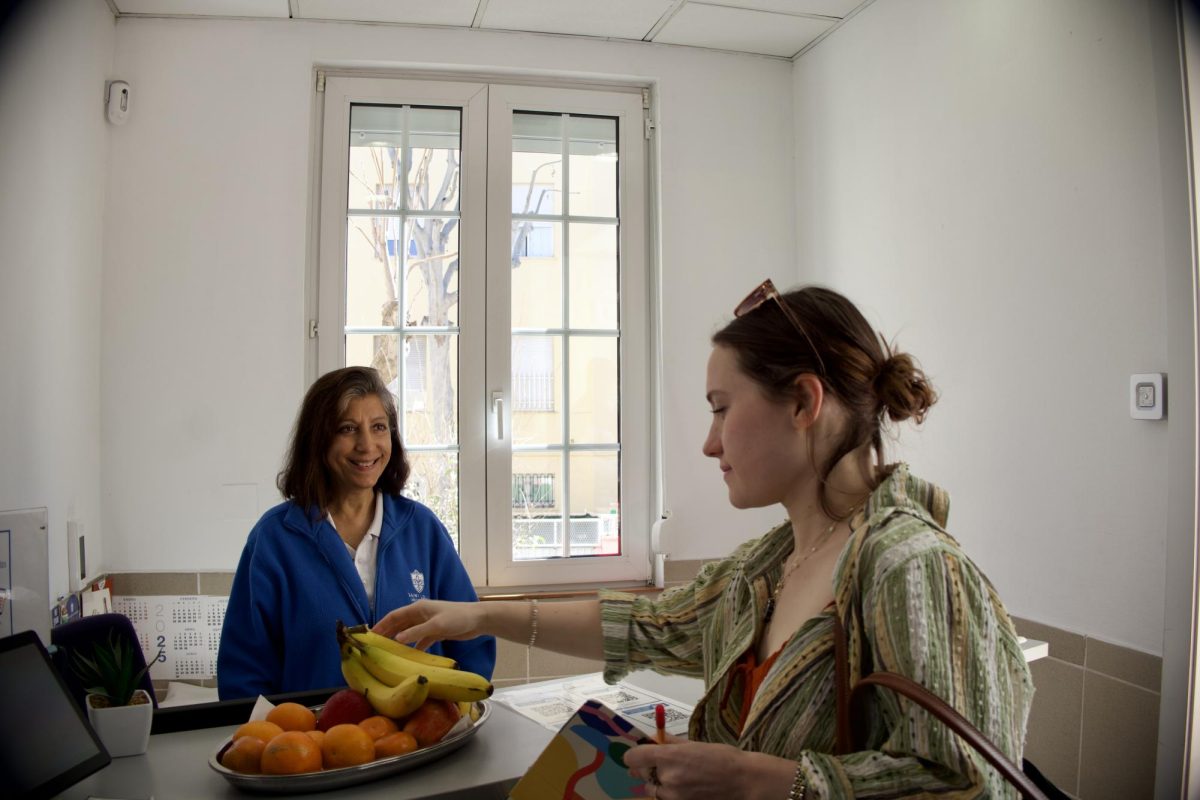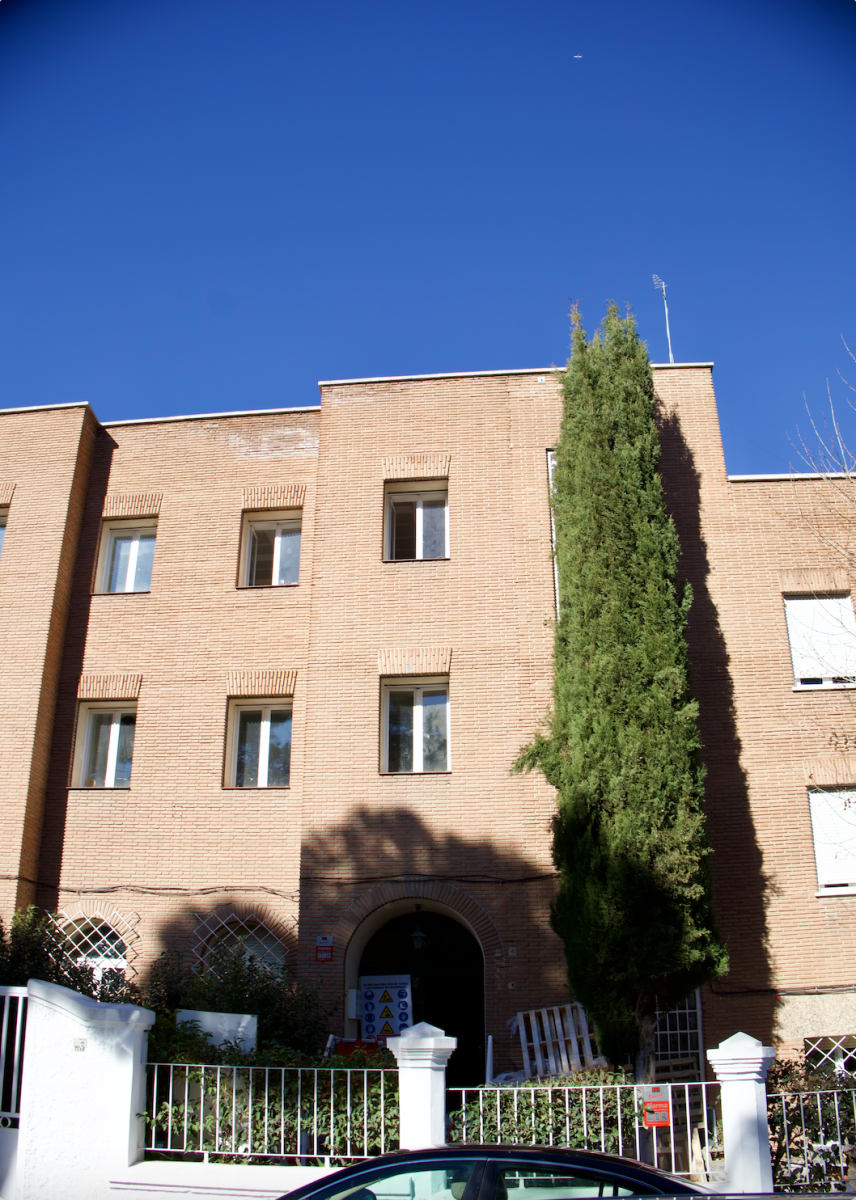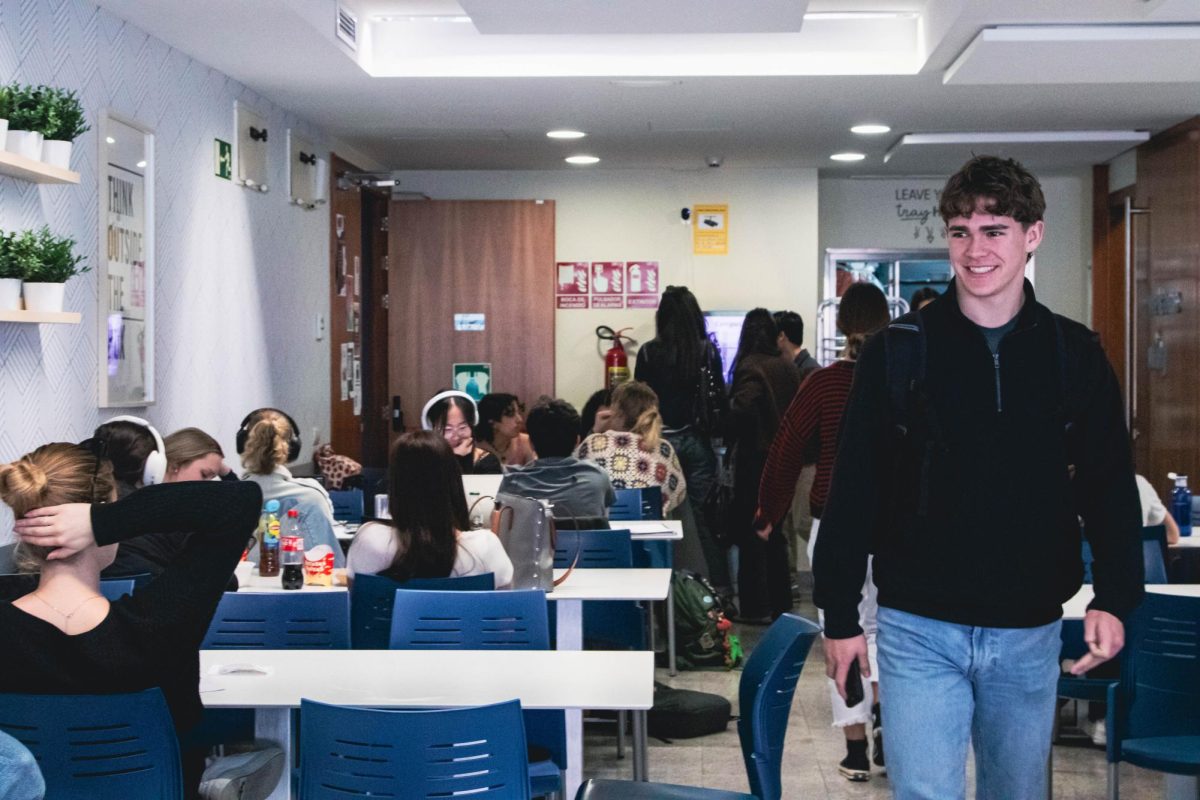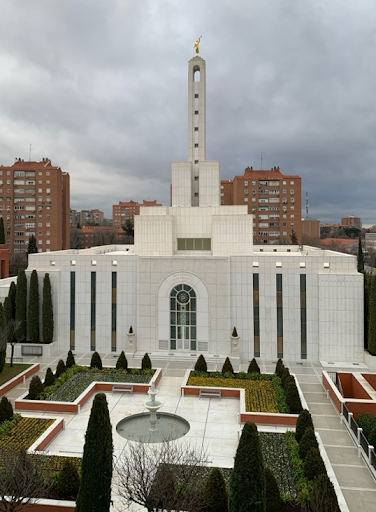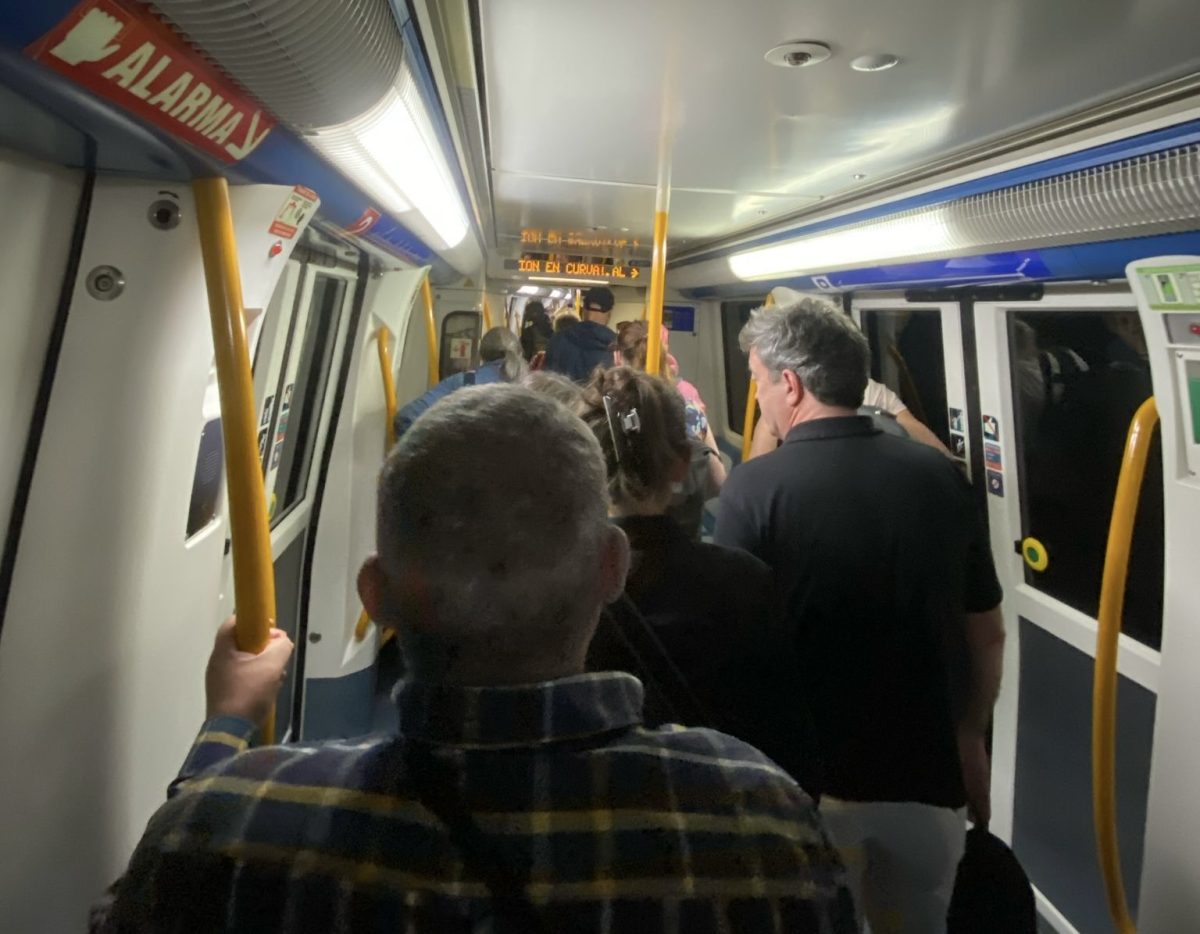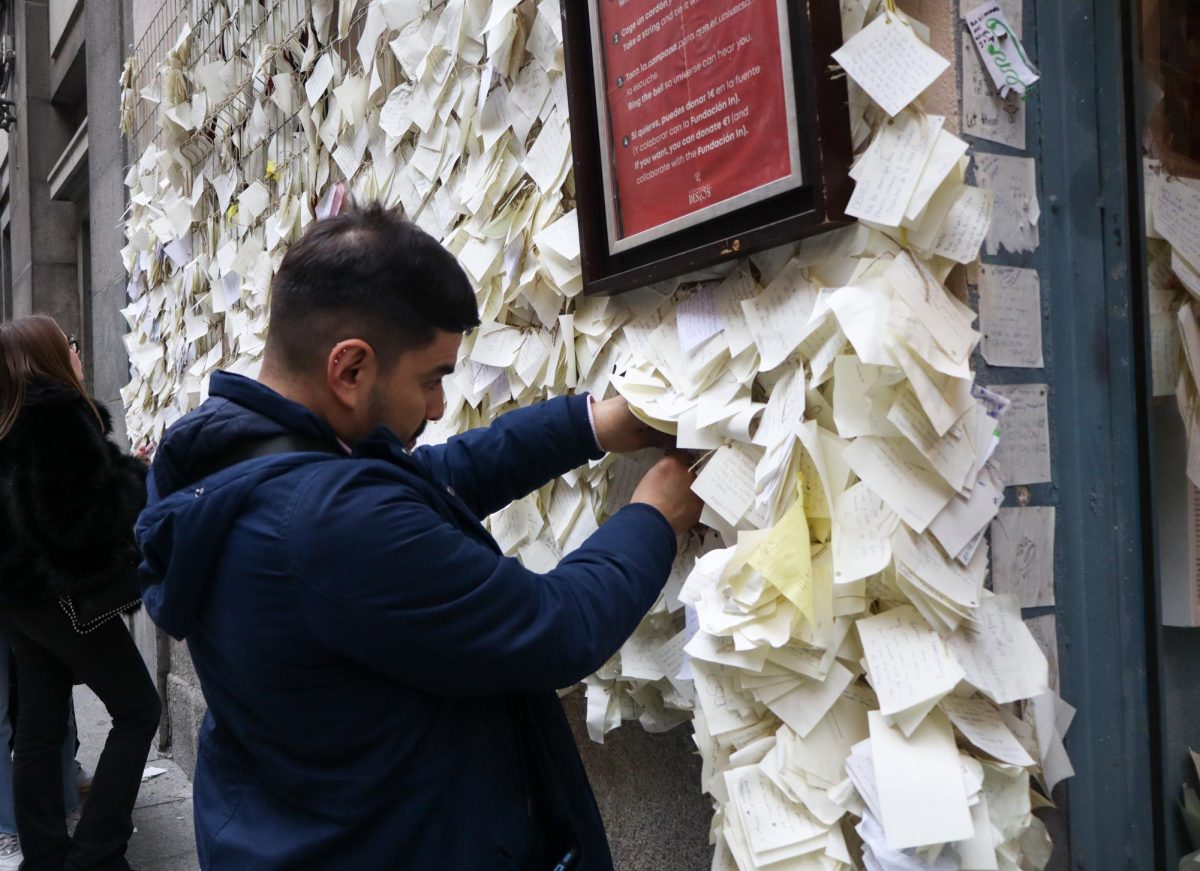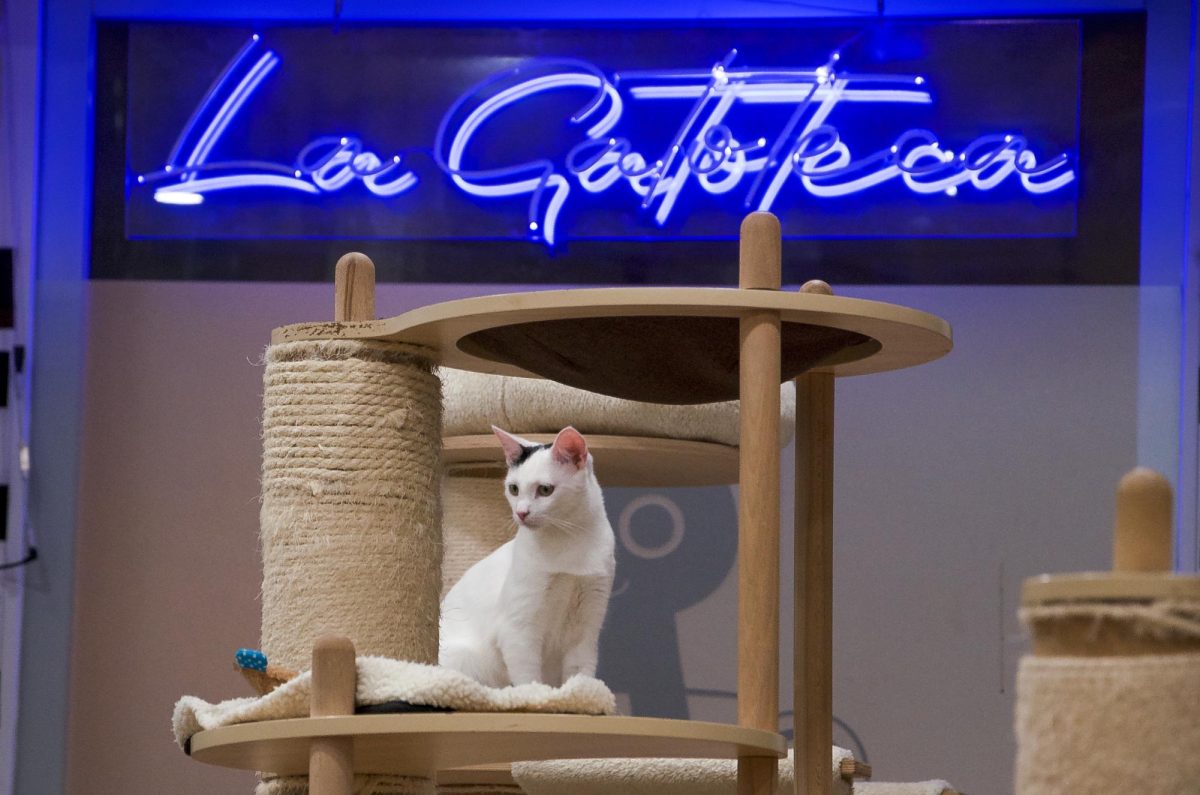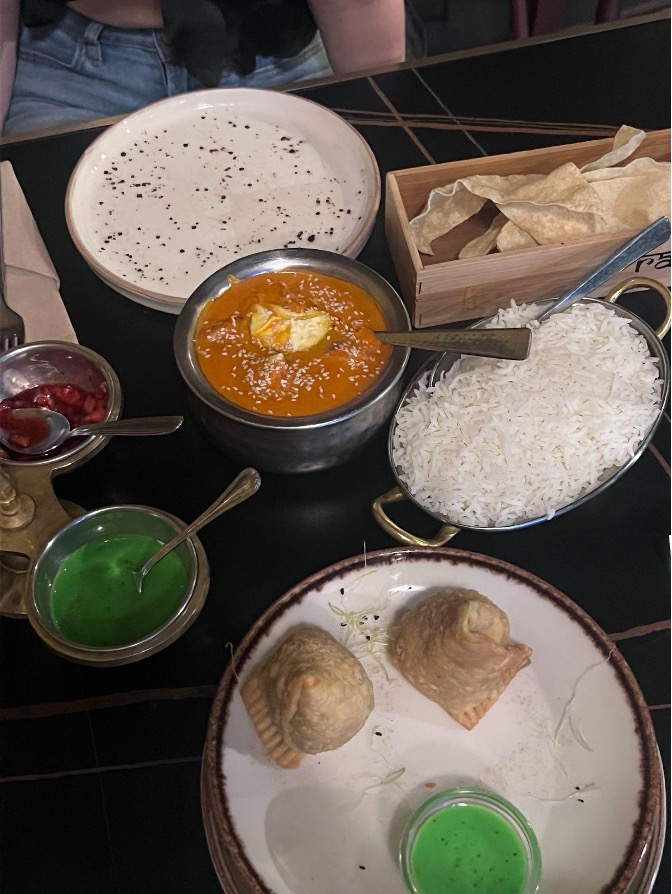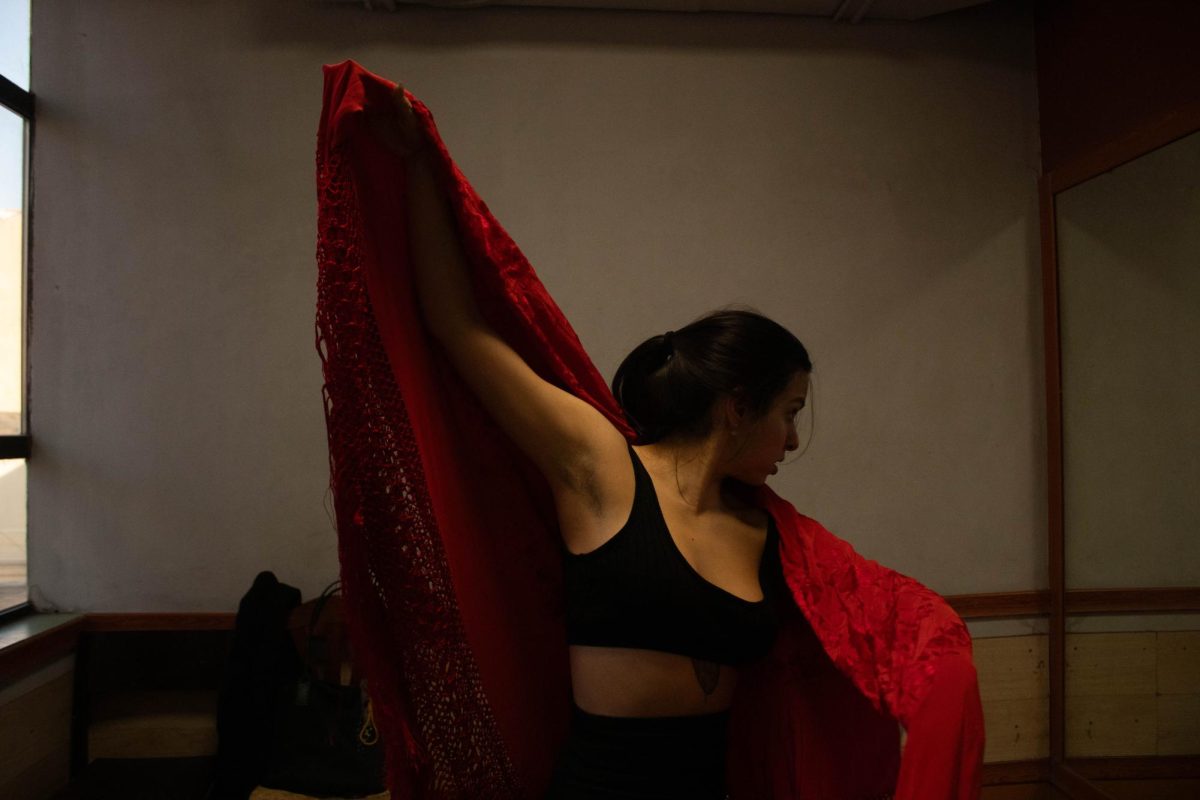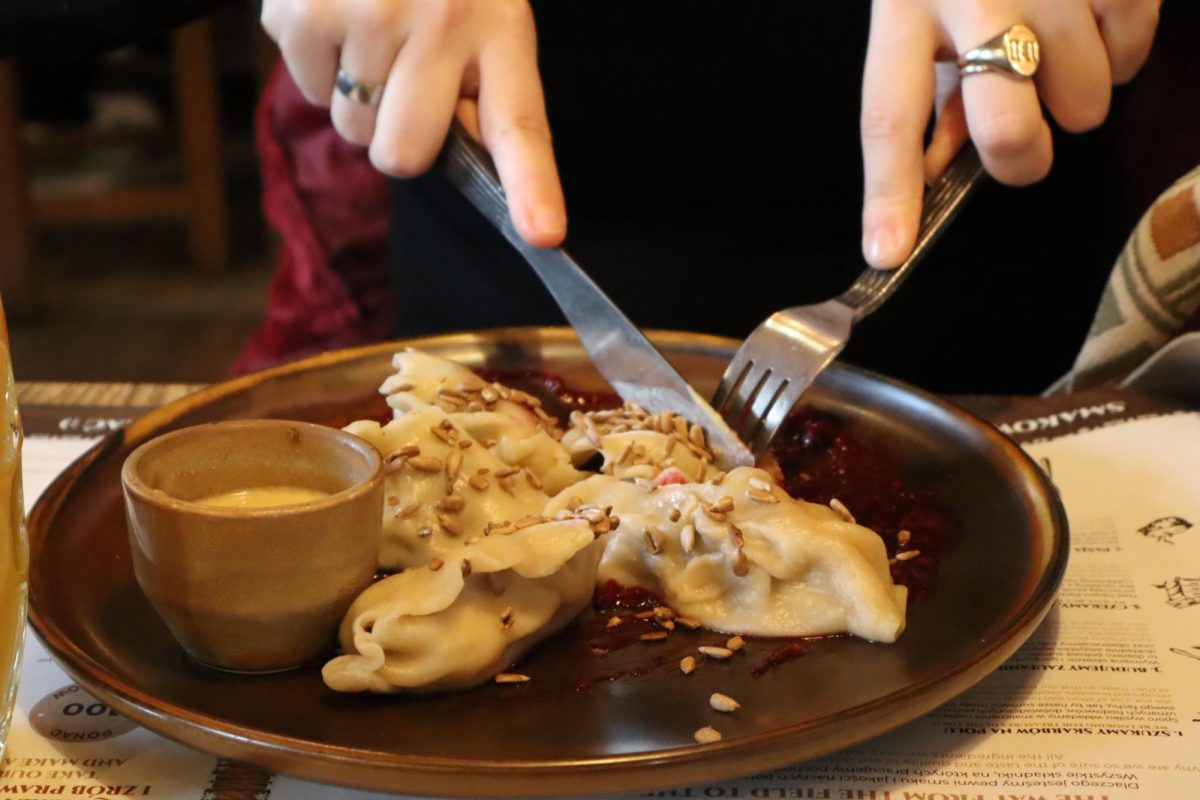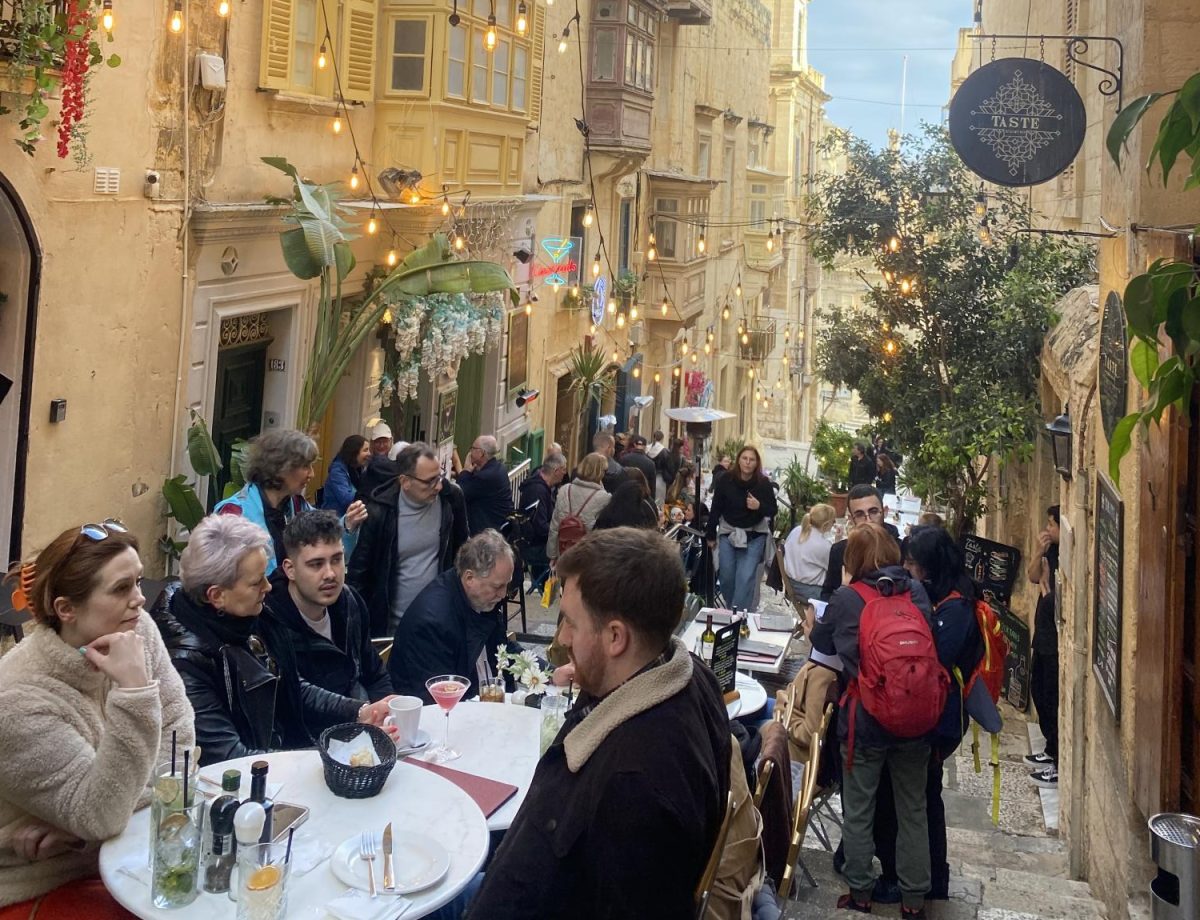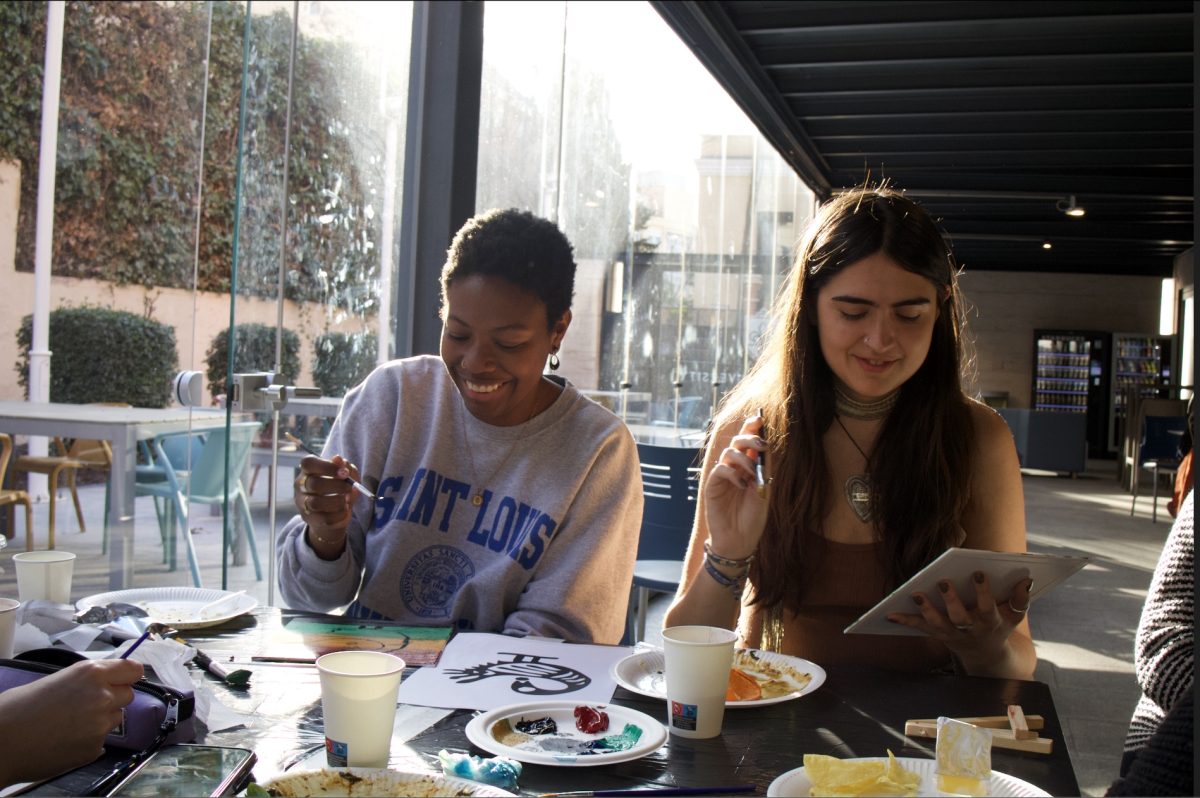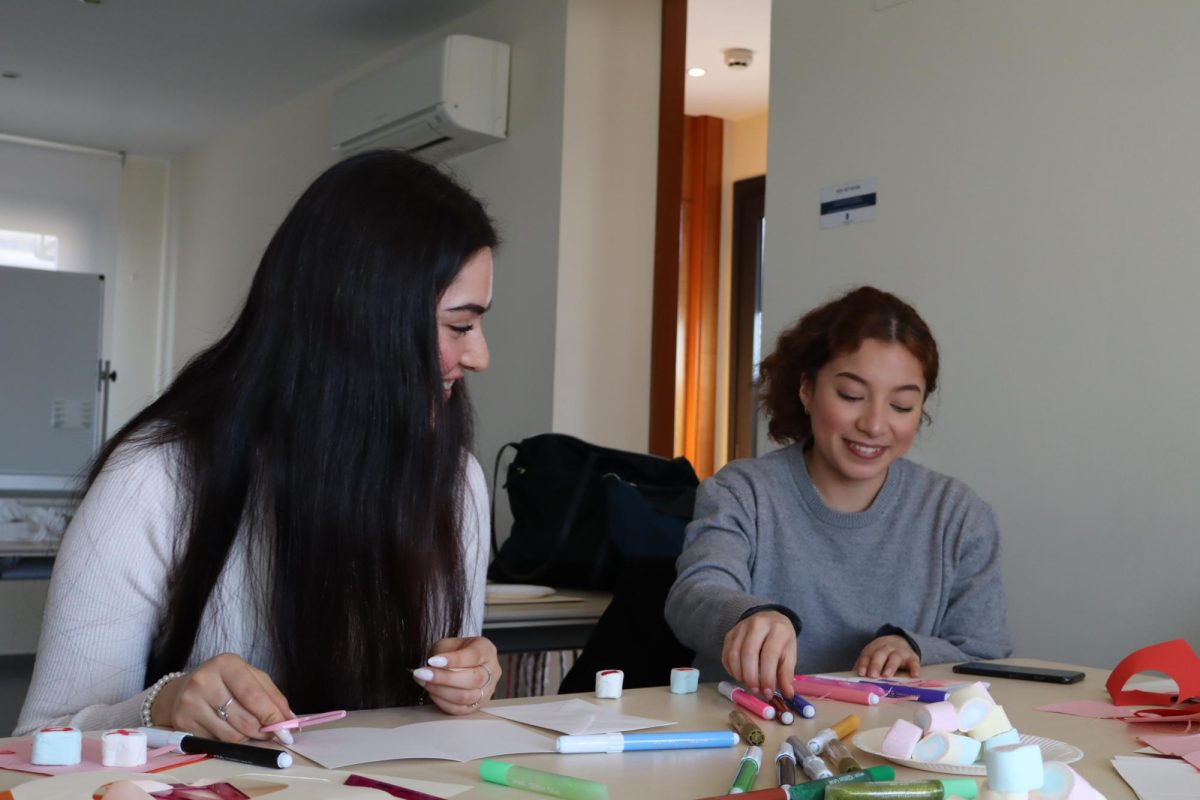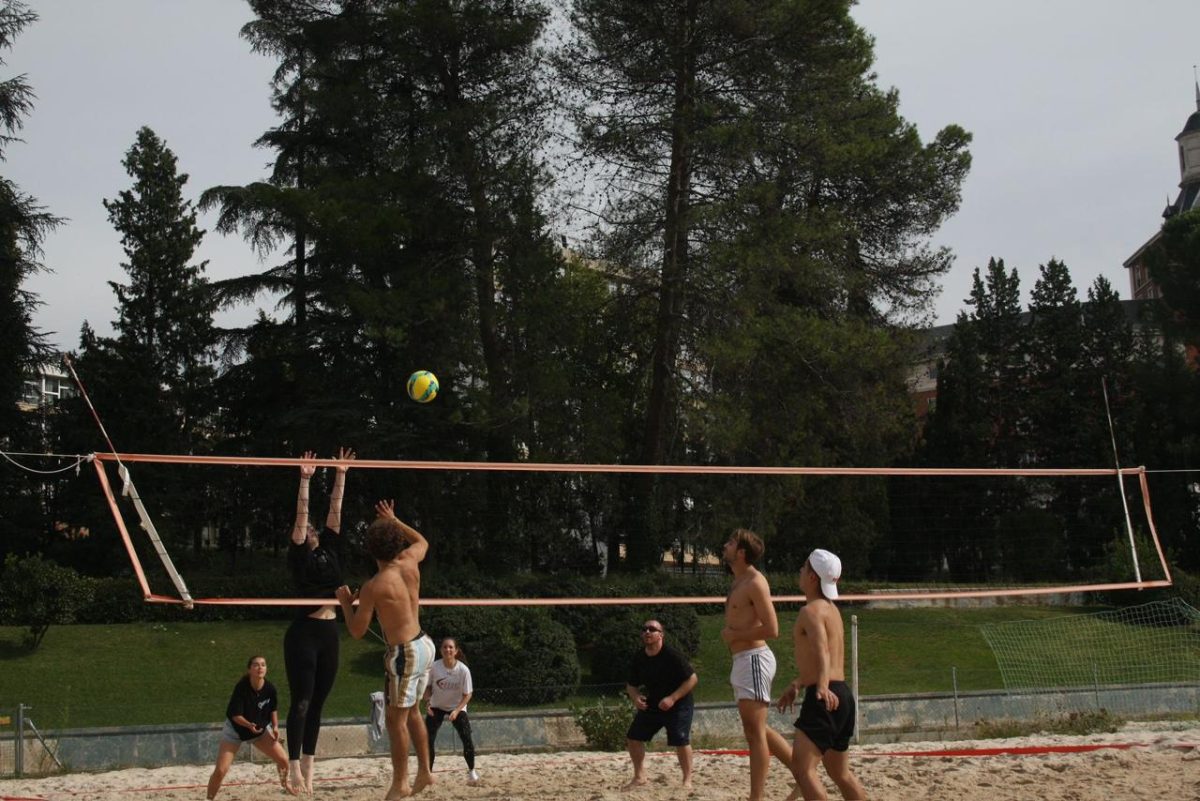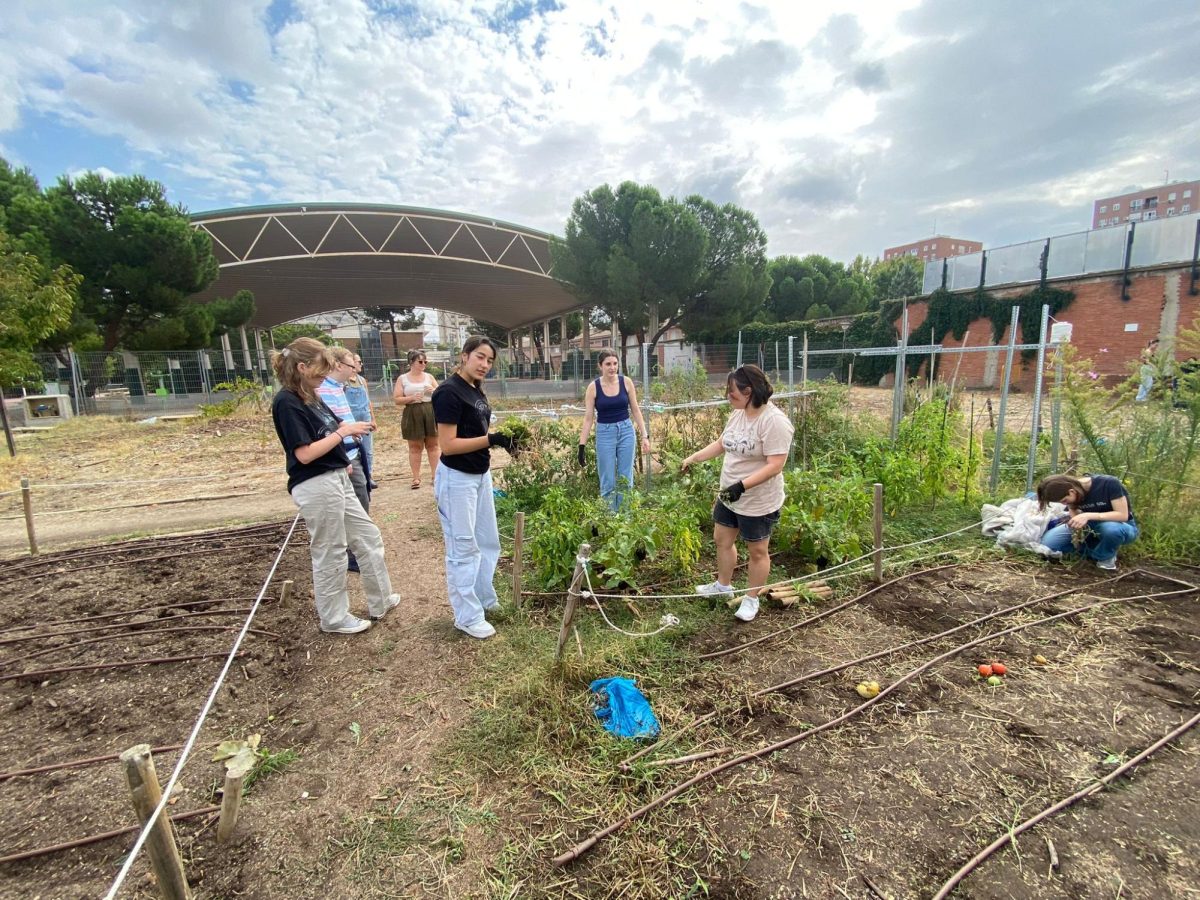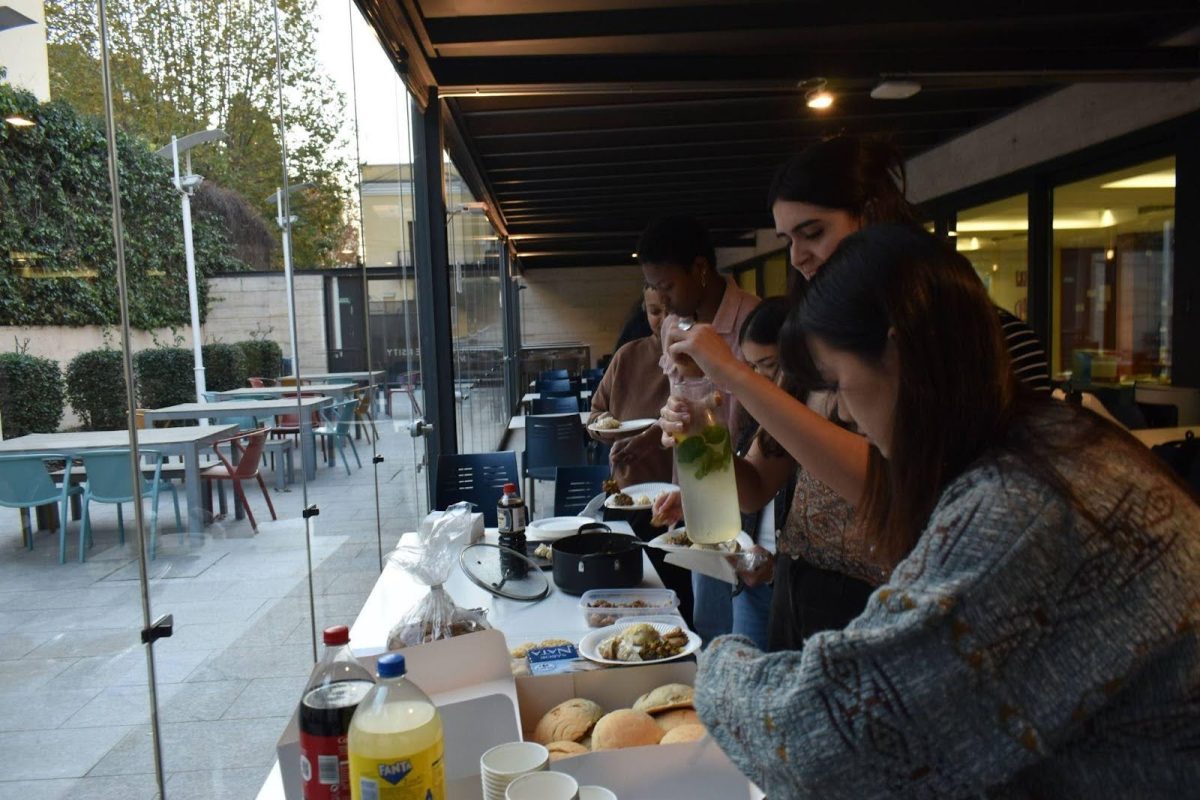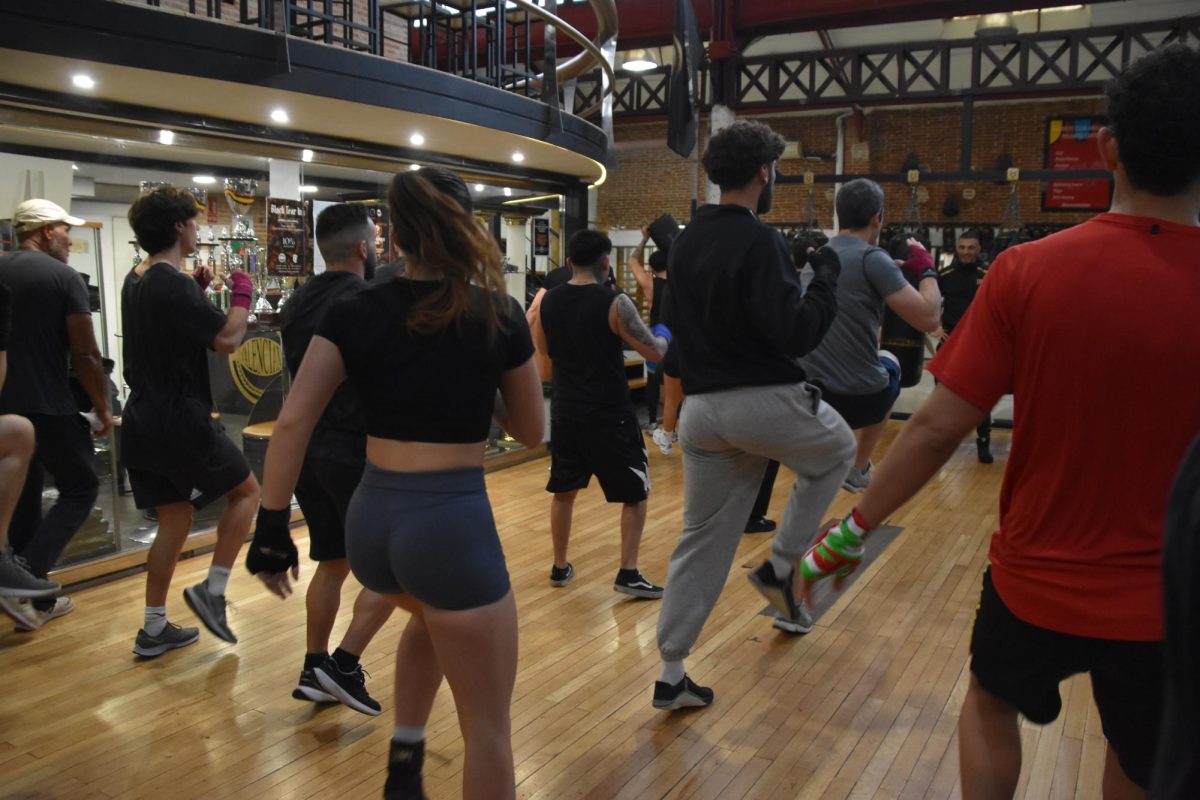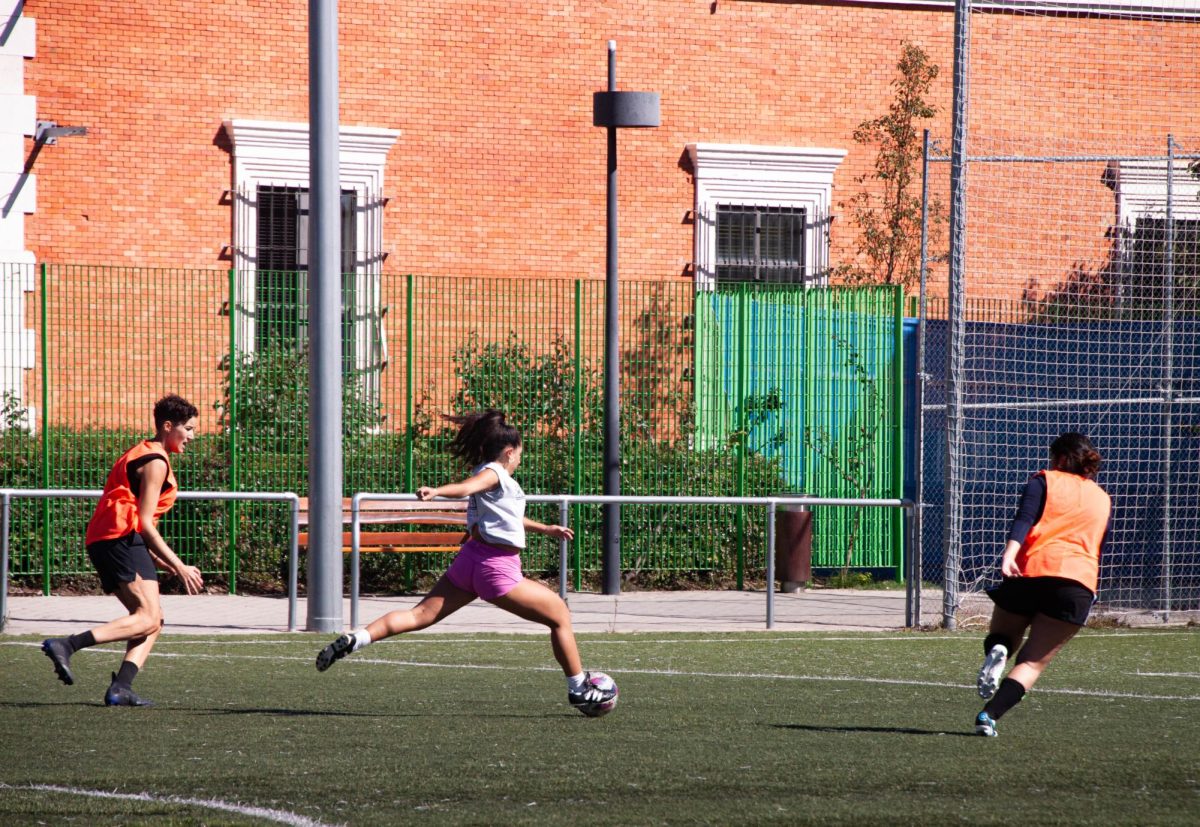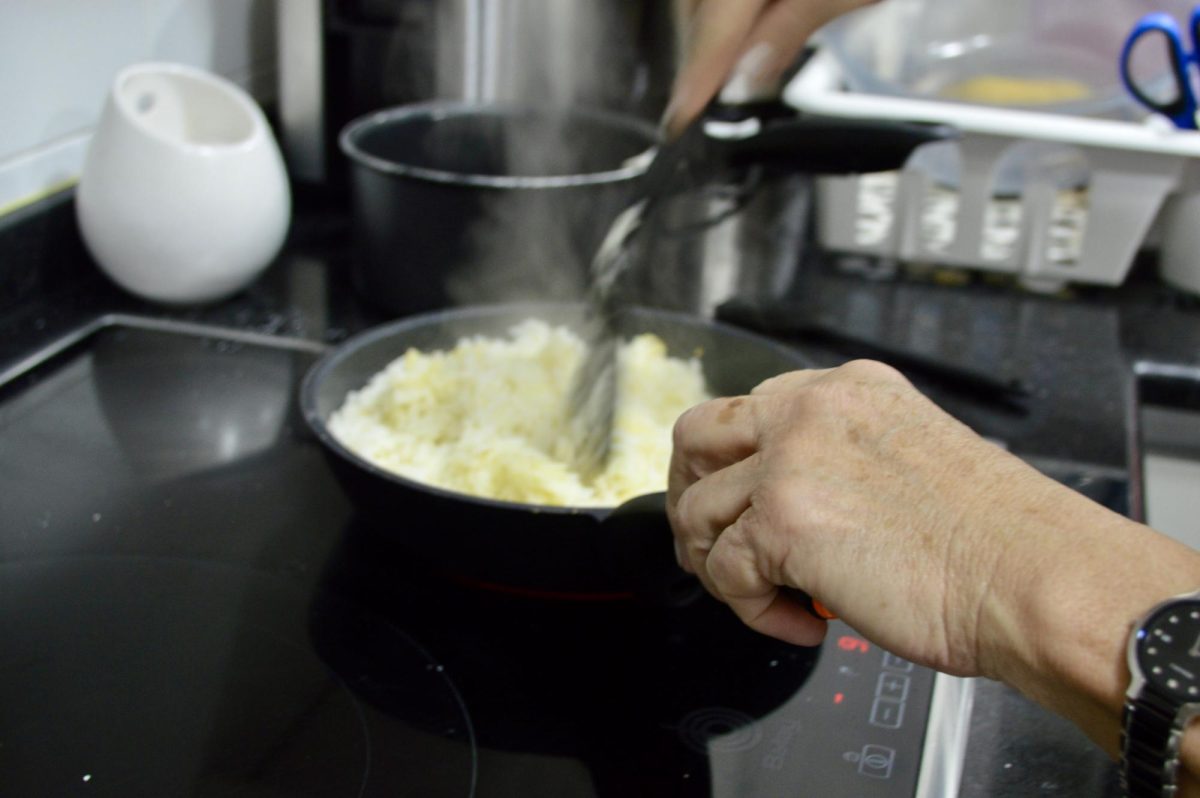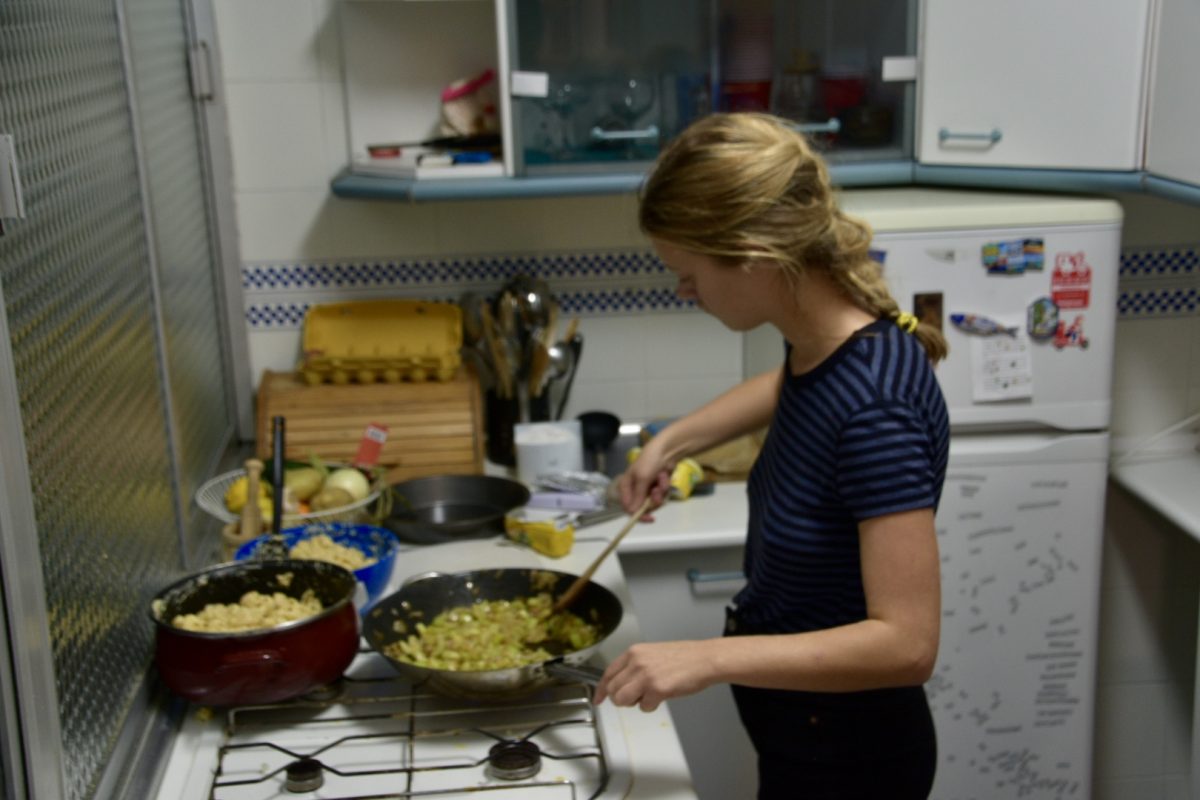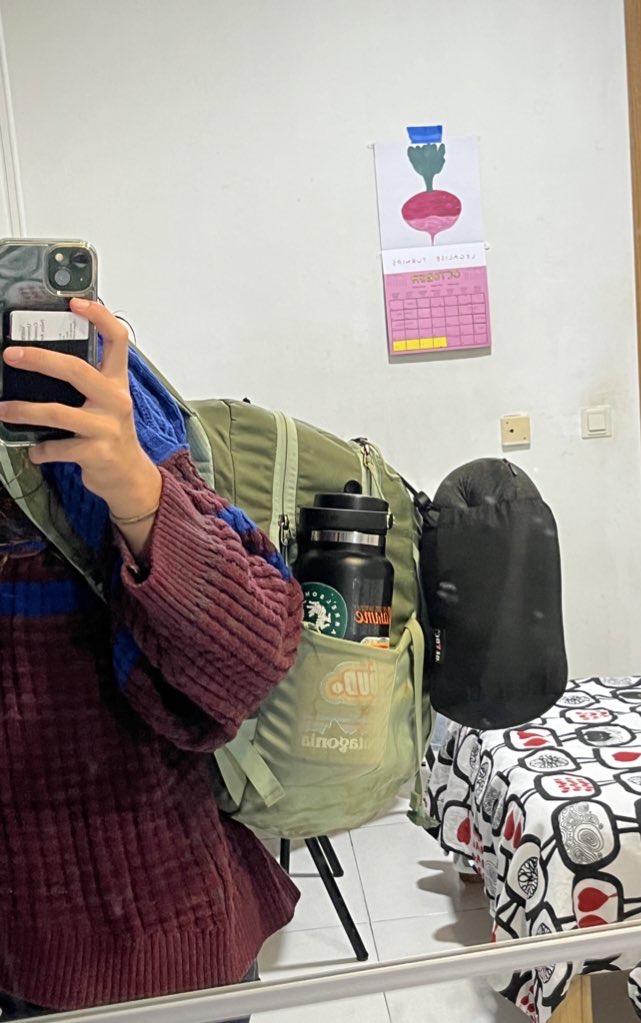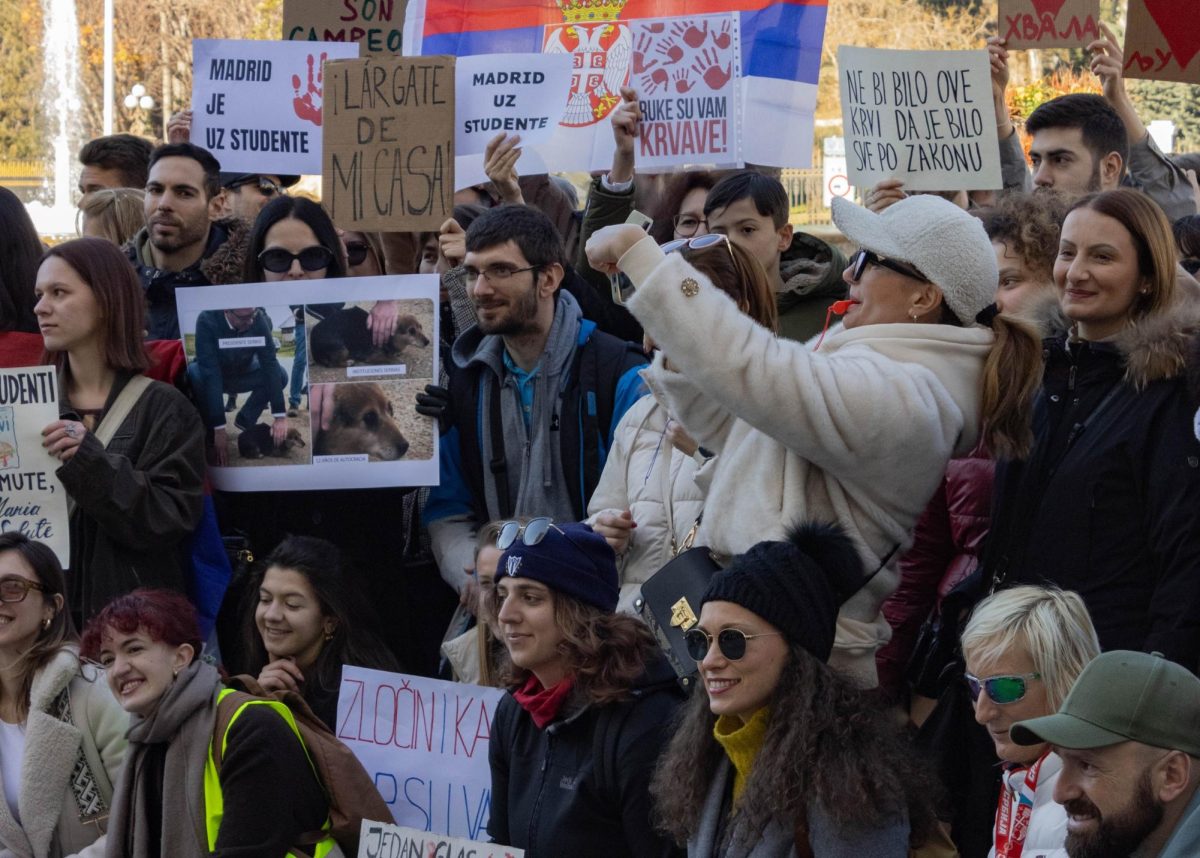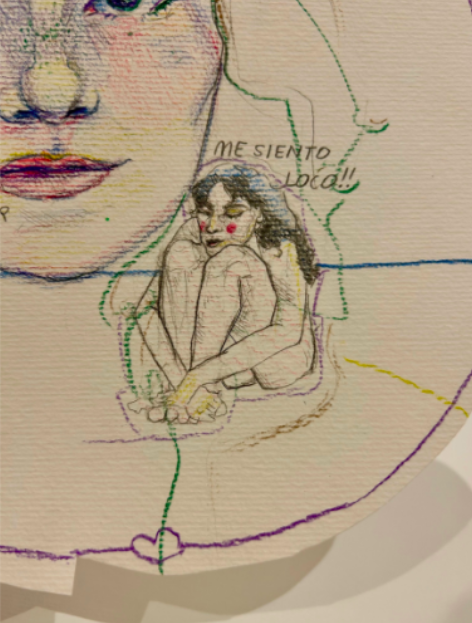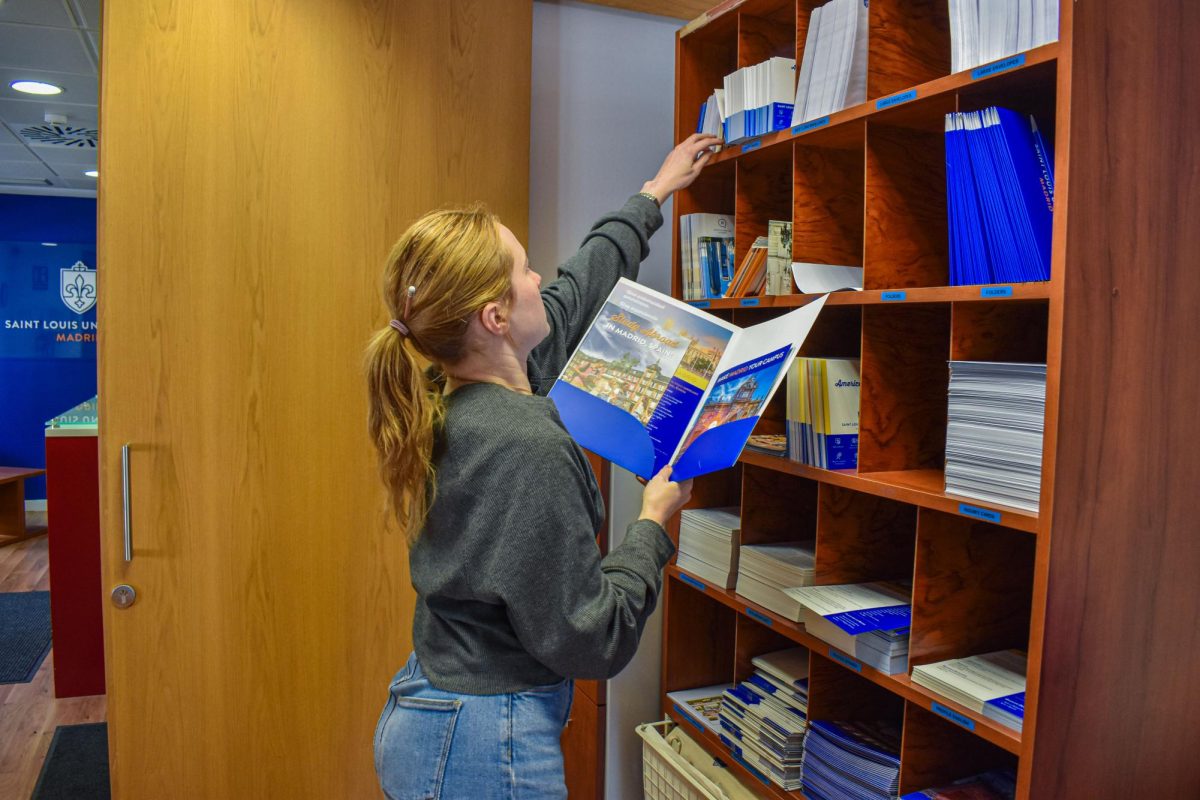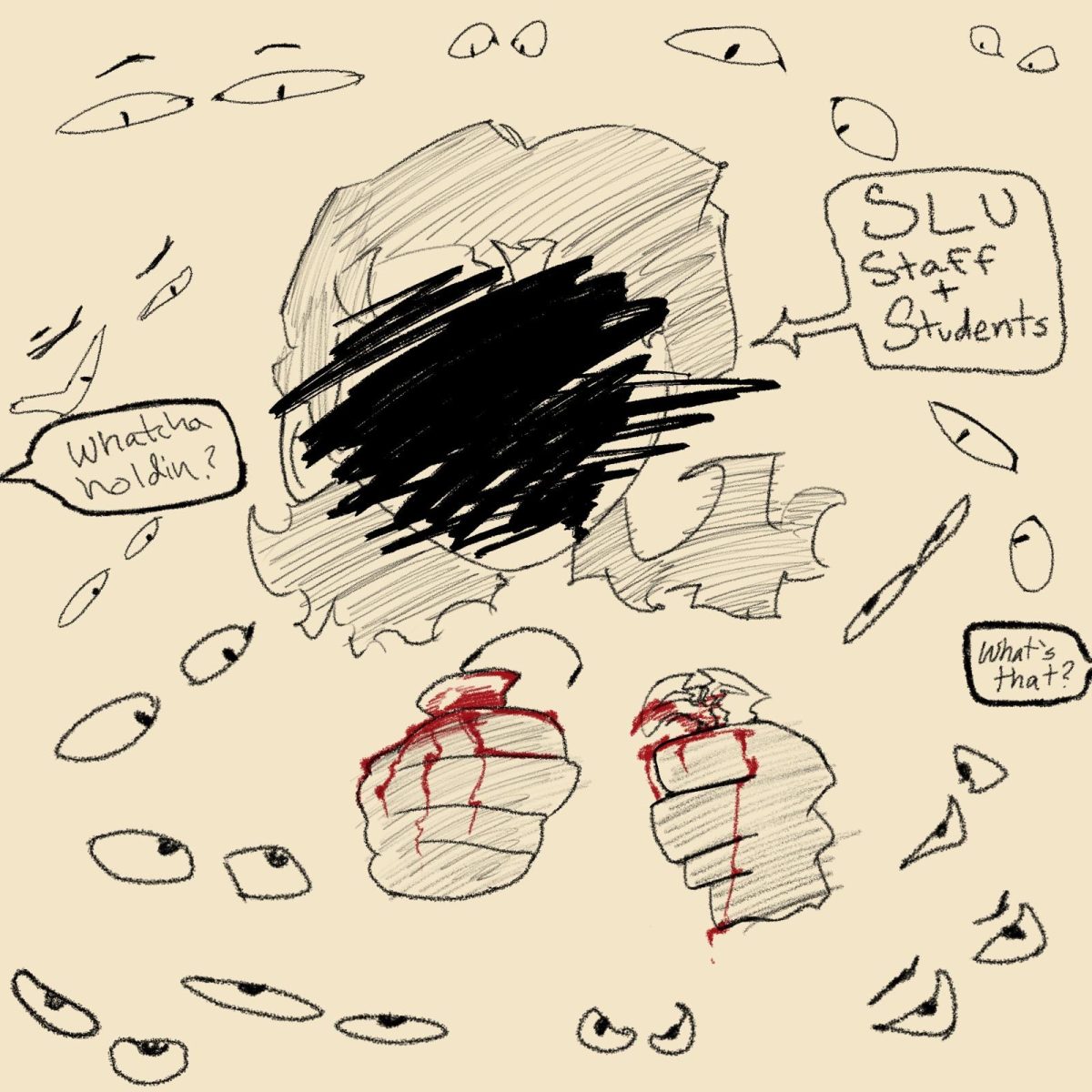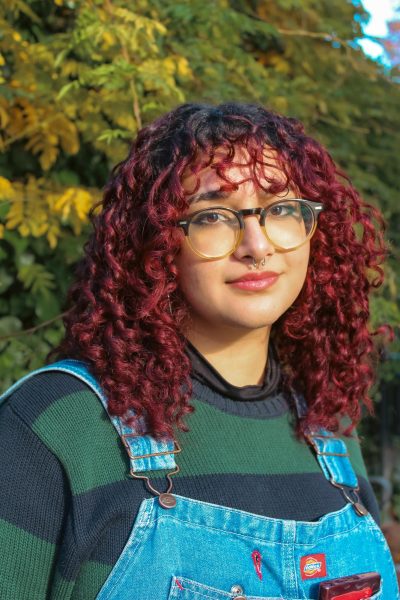Caroline Fields, a second-year student from Virginia, works in the admissions office at SLU-Madrid to help pay for her tuition. She performs practical tasks such as dealing with correspondence from potential students through platforms like Unibuddy.
Her favorite job is talking to potential students and showcasing the school’s charm. She has met incoming high school students and transfers from the U.S. and Europe, but mainly from the US. Fields gives prospective students campus tours and answers questions about housing, professors, classes, and campus activities.
“I really like our school so it’s exciting when I can talk and recruit someone to our school,” Fields said.
Field was able to discover this new skill and interest — talking to prospective students — because she is a recipient of SLU Madrid’s Departmental Support Scholarship, also known as the “work-study scholarship.”
This award allows students to work in departments such as the library, the bookstore, admissions office and student life.
In addition to help with tuition, students also receive mentoring from SLU managers such as Sharrad Belin. Belin, who has worked in the Office of Student Life since the summer of 2022, adjusts his strategies when grooming students, especially first-year students.
“I try to teach them the best I can. I try to implement what I’ve learned from other managers,” Belin said. “I look at the students as further managers, so hopefully, when I try to teach them things, they can add and take away from it to become the best future managers they can be.”
There are different types of scholarships that students can apply for at SLU-Madrid. Some, for example, are for graduates of Catholic or Jesuit high schools. Others are awarded to first-year students, transfer students, and students from large families. Anyone with a GPA above 2.5 can apply for a departmental scholarship. Financial need is not a requirement.
Andrea Delascasas is a fourth-year Colombian student raised in Qatar. She applied for the departmental support scholarship because it was the only award she qualified for. Last semester, she worked as a receptionist at both Padre Arrupe Hall and Padre Rubio Hall. The job, she said, enhanced her time management skills and motivated her to be punctual, improving her academic discipline.
“Surprisingly, it has motivated me to go to class more because I have work and class right after each other,” said Delascasas.
Managing work-study obligations alongside academic schoolwork is a frequent challenge for students with departmental scholarships. Still, students use a variety of techniques to overcome it.
Evelyn Gonzalez, a second-year student from the U.S., discovered the work-study program through a friend and saw it as a practical way to ease financial burdens. She works at the bookstore, gaining experience in the sales and marketing aspects of pitching merchandise ideas and managing apparel and textbooks.
Each semester, workers are given a project. Last spring, Gonzalez designed the three stickers that are now on sale – a Madrid skyline, a Billiken, and a SLU shield. Another student designed school sweatpants. This fall, Gonzalez worked on designing limited edition crewnecks. For feedback on their designs, she and other workers held a raffle and solicited ideas for new merchandise.
Agatha Thomas, a third-year student from the Dominican Republic, saw work-study as a chance to get professional experience without jeopardizing her academic focus. Thomas assists students with presentations and papers as the student coordinator of SLU-Madrid’s writing center, gaining practical skills that enhance her English major. She gets about four or five appointments every week, she said, and dedicates another hour per week to coordinating.
Students usually come to the writing center for peer reviews, which include assistance with grammar, structure, and clarity. They are also able to come to the center to brainstorm when they don’t know how to start a paper or presentation. This experience has helped her slow down and relax when peer-editing because she realized she was moving too quickly for people to understand. Thomas believes that this experience has helped her with her own writing; while she is aware of other students’ writing, she becomes more aware of her own.
Gonzalez arranges her work hours between class gaps to build a routine. In contrast, Delascasas uses work hours for homework, finding it easier to focus in a focused setting. Students like Thomas and Fields prefer completing their hours in the mornings.
“I like doing my work-study in the morning before I have classes because I don’t have classes early, so I like to work early so I’m able to have my afternoons free and do my work without getting burnt out,” said Fields.
The financial assistance provided by the work-study program has been a comfort for these students. Gonzalez appreciates the support, but she would not mind a raise. “It’s been a big help, but I feel like more aid could be rewarded because it is a responsibility that, at times, could be more widely compensated,” Gonzalez said.
